
Beit She'an: A Journey Through Ancient Wonders and Natural Beauty
Beit She'an, located in the northern part of Israel, is a treasure trove of history and culture. Known for its stunning archaeological sites, this city offers a glimpse into ancient civilizations that once thrived here. The city's crown jewel is the Beit She'an National Park, where you can wander among the well-preserved ruins of a Roman-Byzantine city. The impressive amphitheater, the intricate mosaics, and the ancient bathhouses are just a few of the highlights that will transport you back in time. Beyond its historical allure, Beit She'an is also surrounded by natural beauty. The nearby Jordan River and the lush landscapes of the Jezreel Valley provide ample opportunities for outdoor activities such as hiking, bird-watching, and picnicking. The city's warm climate makes it an ideal destination year-round, whether you're exploring the ruins or enjoying the great outdoors. Beit She'an is not just about the past; it is a vibrant city with a welcoming atmosphere. The local markets offer a taste of regional flavors, and the friendly residents are always eager to share their rich heritage. Whether you're a history buff, a nature enthusiast, or simply looking for a unique travel experience, Beit She'an has something special to offer.
Local tips in Beit She'an
- Visit the Beit She'an National Park early in the morning to avoid the heat and crowds.
- Bring comfortable walking shoes as the archaeological sites cover a large area.
- Don't miss the night show at the Roman amphitheater, which combines light and sound to bring history to life.
- Try local delicacies at the city's markets for an authentic culinary experience.
- Plan a day trip to the nearby Gan HaShlosha National Park, known for its natural springs and scenic beauty.
Beit She'an: A Journey Through Ancient Wonders and Natural Beauty
Beit She'an, located in the northern part of Israel, is a treasure trove of history and culture. Known for its stunning archaeological sites, this city offers a glimpse into ancient civilizations that once thrived here. The city's crown jewel is the Beit She'an National Park, where you can wander among the well-preserved ruins of a Roman-Byzantine city. The impressive amphitheater, the intricate mosaics, and the ancient bathhouses are just a few of the highlights that will transport you back in time. Beyond its historical allure, Beit She'an is also surrounded by natural beauty. The nearby Jordan River and the lush landscapes of the Jezreel Valley provide ample opportunities for outdoor activities such as hiking, bird-watching, and picnicking. The city's warm climate makes it an ideal destination year-round, whether you're exploring the ruins or enjoying the great outdoors. Beit She'an is not just about the past; it is a vibrant city with a welcoming atmosphere. The local markets offer a taste of regional flavors, and the friendly residents are always eager to share their rich heritage. Whether you're a history buff, a nature enthusiast, or simply looking for a unique travel experience, Beit She'an has something special to offer.
When is the best time to go to Beit She'an?
Iconic landmarks you can’t miss
Gan HaShlosha National Park
Discover the beauty and history of Gan HaShlosha National Park, an oasis of nature and tranquility in Israel's landscape.
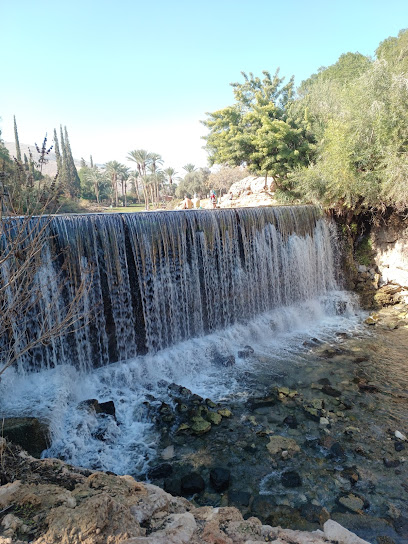
Church of the Nativity
Experience the profound spirituality and rich history of the Church of the Nativity, a UNESCO World Heritage site in the heart of Bethlehem.
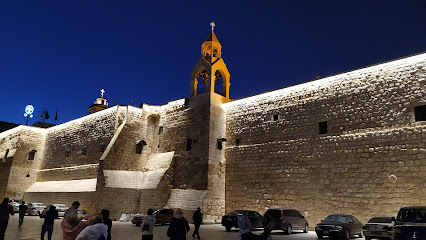
Yardenit
Discover Yardenit, a serene religious destination on the banks of the Jordan River, ideal for spiritual reflection and baptismal ceremonies.
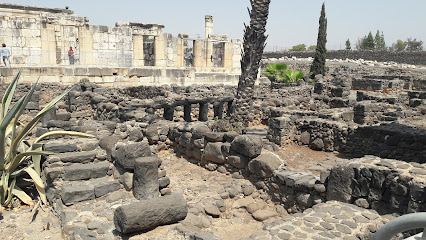
מערת הנטיפים
Experience the enchanting landscapes of Ma'arat HaNatifim National Park, a top destination for hiking, nature exploration, and unforgettable outdoor adventures in Israel.
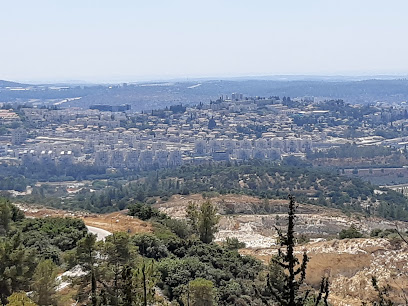
Ma'ayan Harod National Park- Gideon's Spring
Experience the natural beauty and historical richness of Ma'ayan Harod National Park, a serene retreat perfect for nature lovers and history enthusiasts.
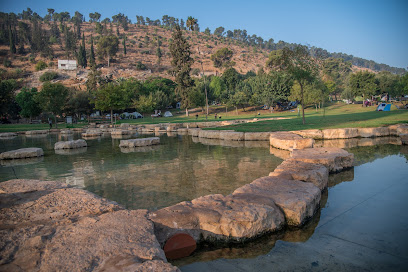
Beit She'an National Park
Explore Beit She'an National Park, a stunning archaeological site in Israel featuring ancient Roman ruins, vibrant mosaics, and breathtaking landscapes.
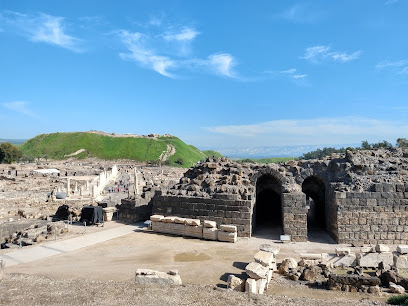
Tavor Mountain Reserve
Explore the stunning landscapes and rich biodiversity of Tavor Mountain Reserve, a must-visit national park in Israel for nature lovers and hiking enthusiasts.
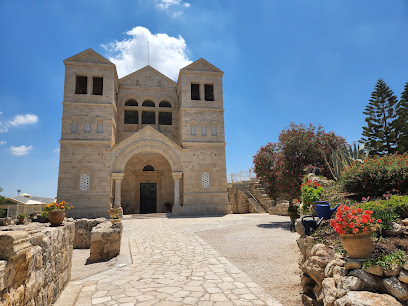
Bet She'arim National Park
Explore the captivating history and breathtaking landscapes of Bet She'arim National Park, a UNESCO World Heritage site in Israel.
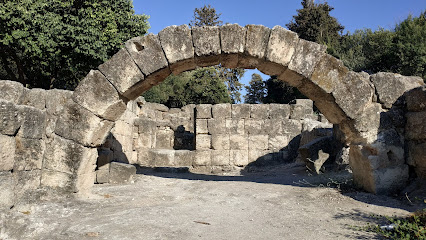
Ganey Hugga
Discover the ultimate water adventure at Ganey Hugga, a captivating water park in Ein Hoga, perfect for families and thrill-seekers alike.
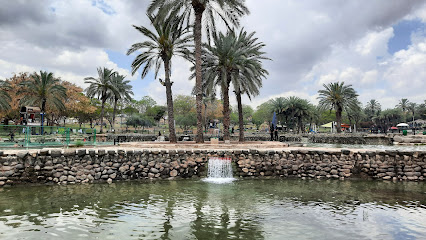
Beit Gabriel on the Kinneret
Explore the vibrant cultural center of Beit Gabriel on the Kinneret, where art and nature come together to create a unique tourist experience.
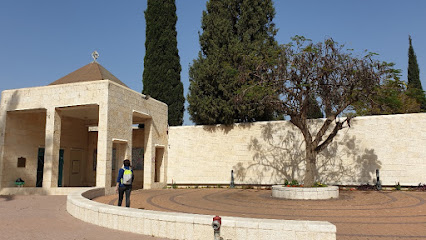
Korazim National Park
Explore the rich history and natural beauty of Korazim National Park, a stunning destination for hiking and archaeological discoveries in Israel.
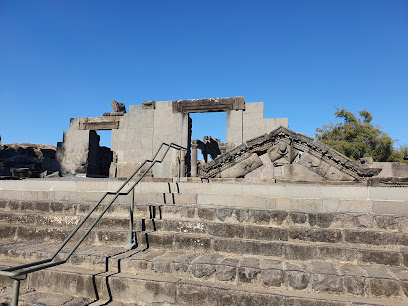
Mishkan Museum of Art
Explore contemporary masterpieces and artistic inspiration at the Mishkan Museum of Art in Ein Harod, a must-visit for art lovers and cultural enthusiasts.
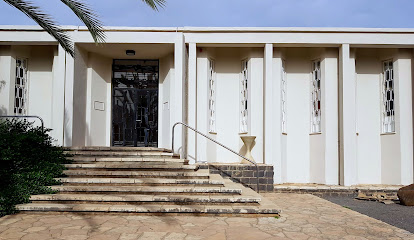
Twins Cave
Discover Twins Cave, a breathtaking national park gem with stunning rock formations and diverse wildlife, perfect for nature lovers and adventure seekers alike.
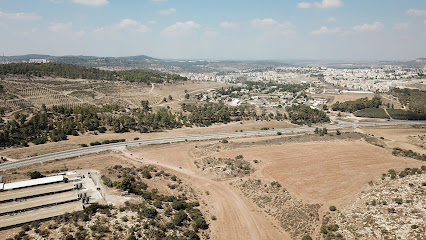
Mount Tabor
Discover the breathtaking beauty and rich history of Mount Tabor, a stunning mountain peak in Israel offering adventure and panoramic views.
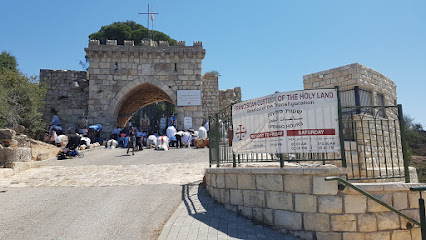
Ein Muda
Explore the captivating beauty of Ein Muda Nature Preserve in Israel, where tranquility and nature harmoniously blend for an unforgettable experience.
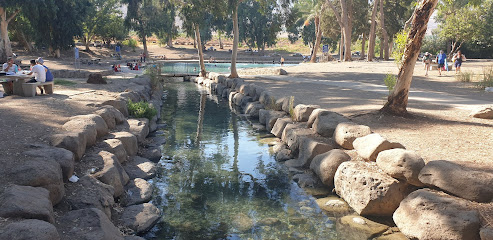
Unmissable attractions to see
Archaeological Site of Jerash
Discover the majestic ruins of Jerash, a stunning archaeological site in Jordan that showcases the glory of the Roman Empire and its rich heritage.
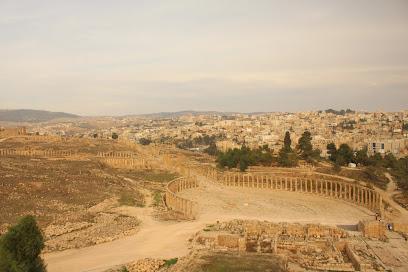
Gan HaShlosha National Park
Explore the serene beauty of Gan HaShlosha National Park, a nature lover's paradise filled with crystal-clear springs, lush landscapes, and rich history.
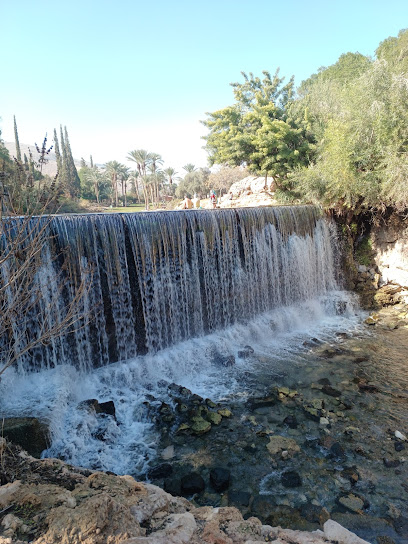
Yardenit
Explore Yardenit, the sacred baptismal site on the Jordan River, where spirituality meets stunning natural beauty in Israel's rich history.
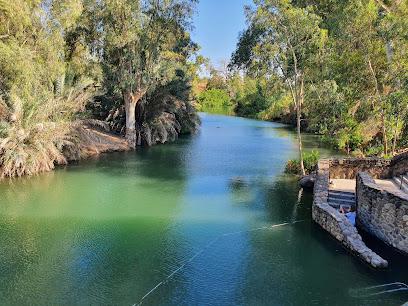
Church of the Annunciation
Explore the Church of the Annunciation in Nazareth, where history, faith, and stunning architecture meet in a breathtaking pilgrimage destination.
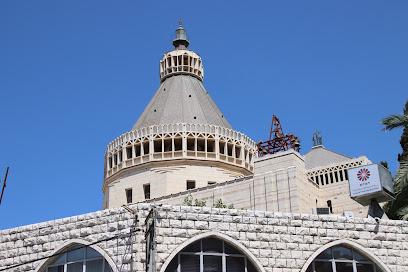
Ajloun Castle
Discover the rich history and breathtaking views at Ajloun Castle, a remarkable medieval fortress in Jordan that transports visitors back in time.
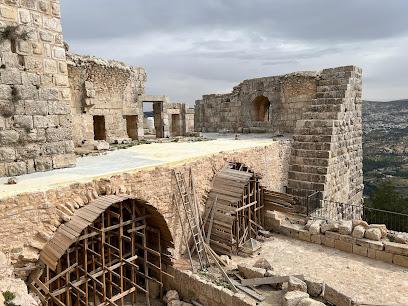
Tomb of Rabbi Meir
Explore the Tomb of Rabbi Meir in Tiberias, a revered pilgrimage destination rich in history and spiritual significance, offering a tranquil escape for all visitors.
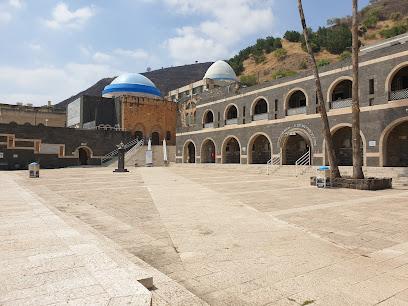
מערת הנטיפים
Discover Ma'arat HaNatifim, a breathtaking national park in Israel, offering stunning landscapes, hiking trails, and a unique opportunity to connect with nature.
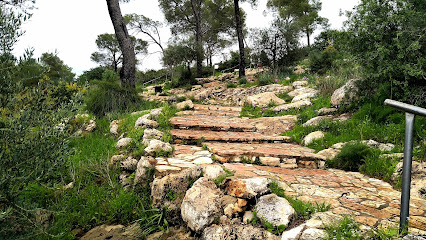
Park Hama'ayanot
Experience the beauty and tranquility of Park Hama'ayanot, an oasis of lush landscapes and family-friendly amenities in Israel.
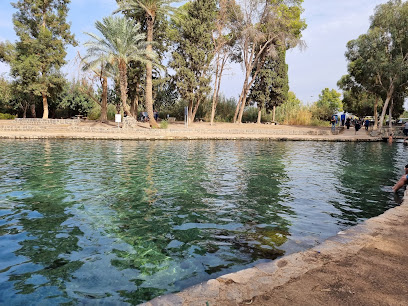
The Church of the Beatitudes
Explore the spiritual haven of The Church of the Beatitudes, where stunning architecture meets the serene beauty of the Sea of Galilee.
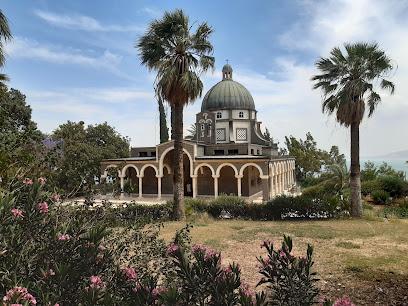
Hamat Tiberias National Park
Explore Hamat Tiberias National Park, a serene retreat with therapeutic hot springs, rich Roman history, and stunning views of the Sea of Galilee.
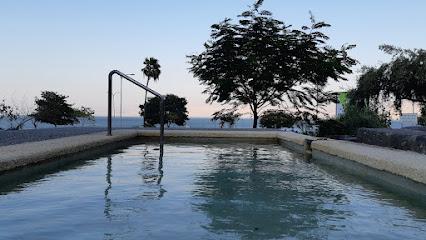
Gan Garoo Zoo
Discover the wonders of Australian wildlife at Gan Garoo Zoo in Nir David, where you can interact with kangaroos and enjoy a beautiful park setting.
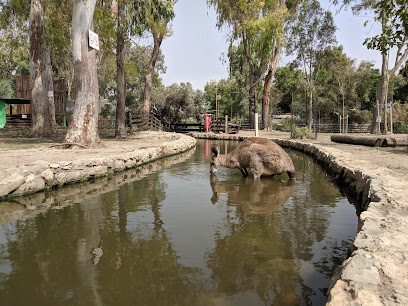
Bet She'arim National Park
Experience the perfect blend of history and nature at Bet She'arim National Park, a captivating destination for hikers and history enthusiasts in Israel.
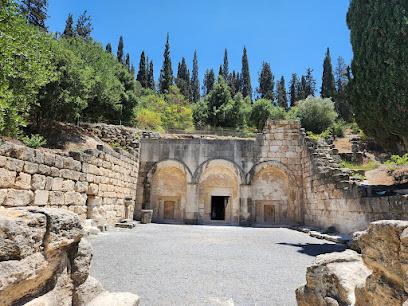
The Tomb Site of the Rambam
Explore the Tomb of the Rambam in Tiberias, a sacred site honoring the legacy of a great Jewish philosopher and physician.
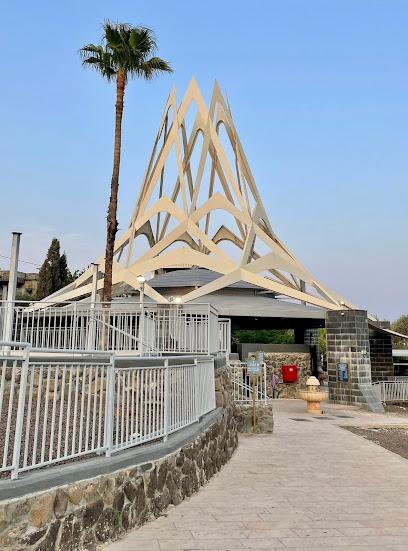
Cana Catholic Wedding Church
Explore the sacred history of Kafr Kanna at the Cana Catholic Wedding Church, a must-visit pilgrimage site in Israel.
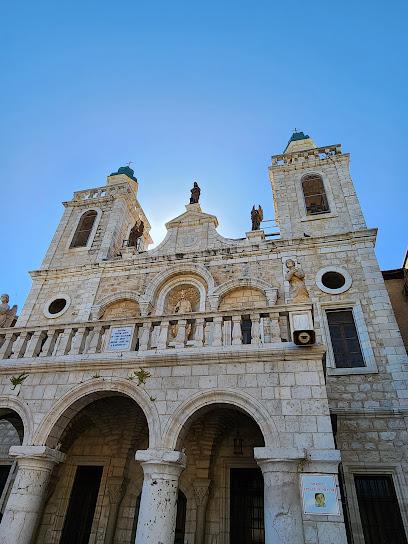
Megiddo National Park
Discover the ancient city of Megiddo National Park, where history meets stunning natural beauty in Israel's remarkable landscapes.
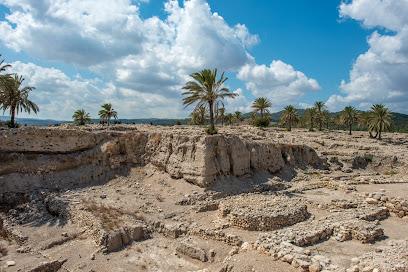
Essential places to dine
Shipudey Hakikar
Experience authentic Middle Eastern flavors at Shipudey Hakikar - a culinary gem in Beit She'an offering delicious grilled dishes and a warm atmosphere.
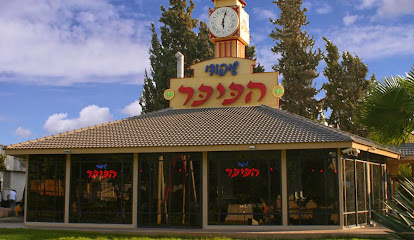
Cafe Greg
Discover Cafe Greg in Beit She'an – where cozy meets culinary delight with delicious kosher breakfasts and quality coffee.
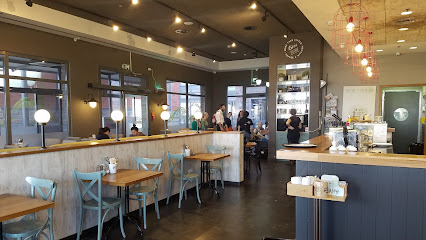
Shawarma square
Discover authentic Middle Eastern flavors at Shawarma Square in Beit She'an – where every bite is a taste of tradition.
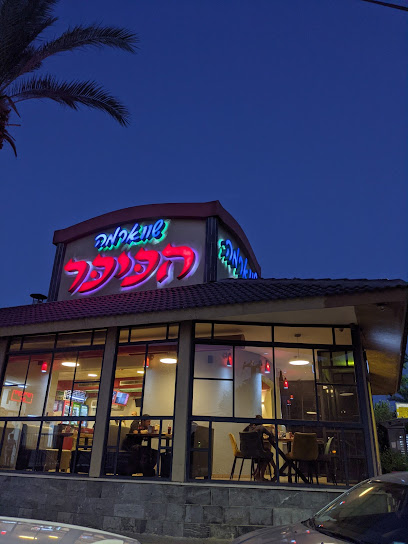
Mother Restaurant
Discover authentic Middle Eastern cuisine at Mother Restaurant in Beit She'an, where every dish tells a story of tradition and flavor.
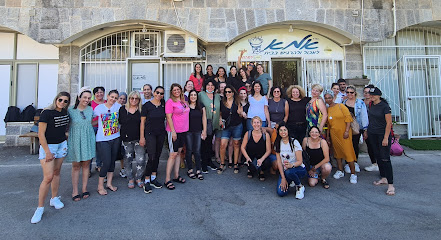
Helena Bar&Restaurant הלנה בר מסעדה
Discover Helena Bar&Restaurant: A kosher culinary haven in Beit She'an offering exquisite dishes and an inviting atmosphere.
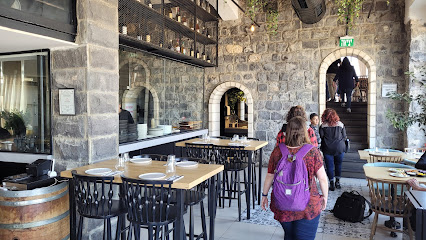
פלאפל הנשיא אוחנה
Discover authentic Israeli street food at פלאפל הנשיא אוחנה in Beit She'an - where flavor meets tradition in every bite!
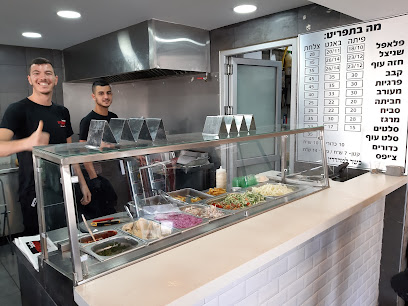
אצה סושי בר בית שאן
Experience authentic sushi dining at Atza Sushi Bar in Beit She'an - where fresh ingredients meet traditional Japanese flavors.
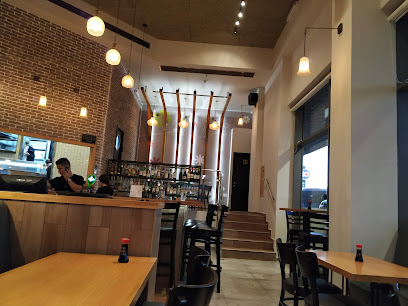
פלאפל שווארמה בר ששת
Discover authentic Middle Eastern flavors at Falafel Shawarma Bar in Beit She'an - where every bite tells a story.
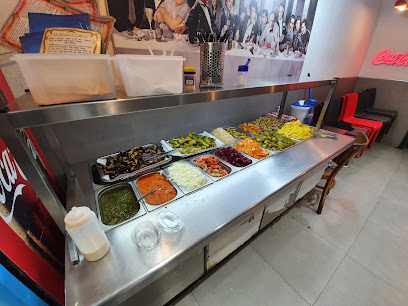
פלאפל זהבה
Savor authentic Israeli flavors at פלאפל זהבה in Beit She'an – where every bite of falafel tells a delicious story.
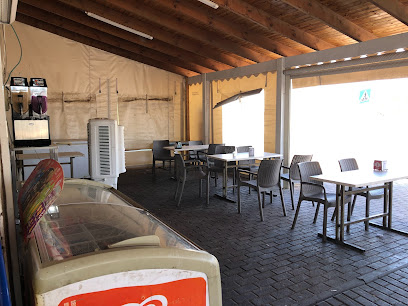
האיטלקייה
Savor authentic Italian cuisine at האיטלקייה in Beit She'an, where traditional flavors meet a cozy atmosphere for all diners.
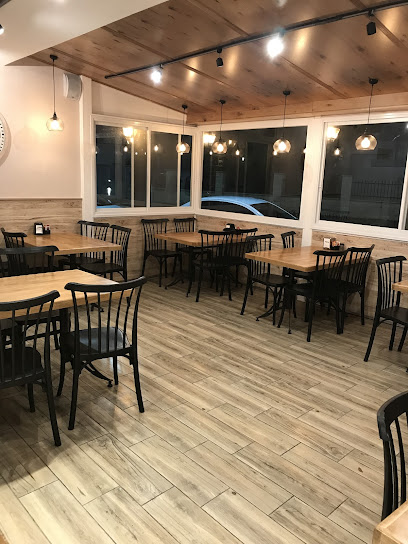
Mifgash Gil
Discover Mifgash Gil in Beit She'an: A delightful restaurant serving authentic Israeli cuisine in a welcoming atmosphere.
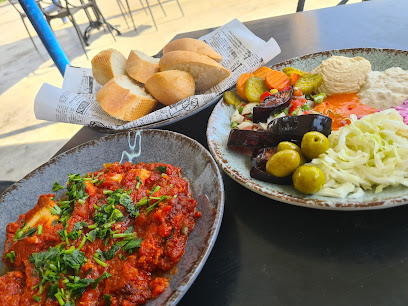
Rome Pizza
Experience the authentic taste of Italy at Rome Pizza in Beit She'an – where every slice tells a delicious story.
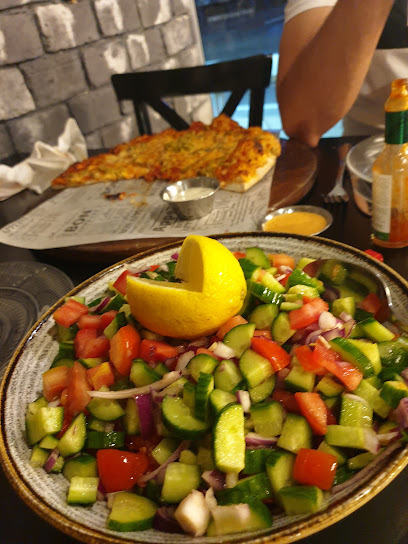
שיפודי בבילה
Experience the authentic taste of Israel at Shipudi Babila in Beit She'an – where flavorful grilled meats meet warm hospitality.
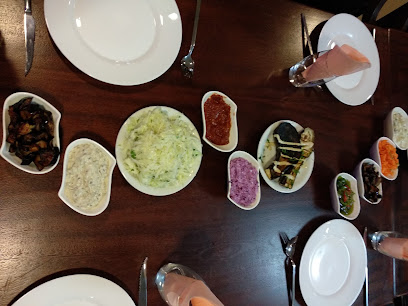
חומוס אליהו בית שאן
Experience authentic Israeli flavors at Hummus Eliyahu in Beit She'an - a must-visit culinary destination for hummus lovers.
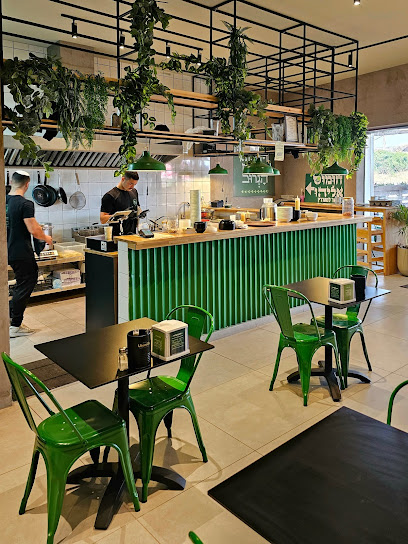
Baxi Restaurant
Discover the culinary treasures of Baxi Restaurant in Beit She'an - where kosher meets modern cuisine in an inviting atmosphere.
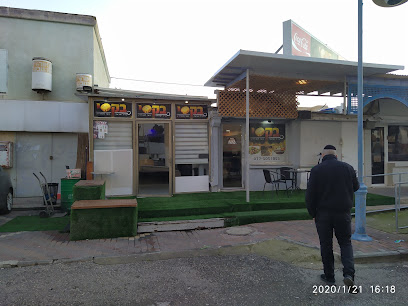
Markets, malls and hidden boutiques
שופרסל דיל Shufersal Deal
Explore the vibrant selection at Shufersal Deal, Beit She'an's go-to supermarket for fresh produce and local flavors.
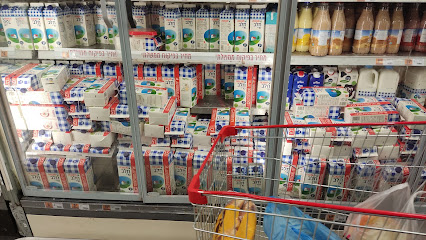
Rasko Shopping Center
Explore the Rasko Shopping Center in Beit She'an for a delightful shopping experience with diverse stores, delicious dining, and a welcoming atmosphere.
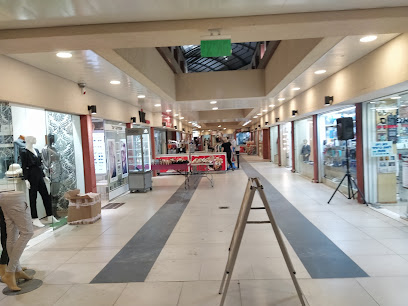
אחים בן חיים
Explore Achihem Ben Chaim in Beit She'an for an incredible selection of home goods that blend quality, style, and local craftsmanship.
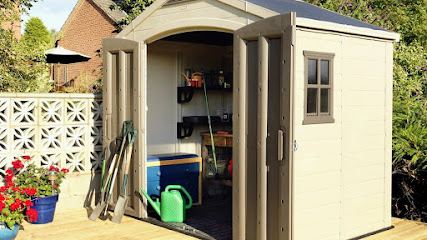
תכשיטי קורל בית שאן
Explore the exquisite craftsmanship of Tchelet Coral Jewelry, a jewel in the heart of Beit She'an, perfect for unique gifts and personal treasures.
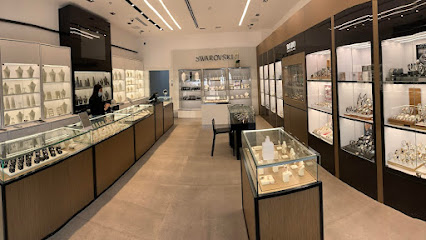
כנפו תכשיטים
Explore the exquisite craftsmanship at Knafo Jewelry in Beit She'an, where every piece tells a story of local tradition and artistry.
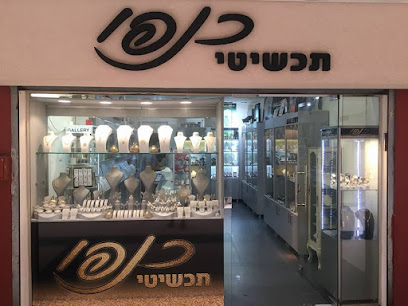
כלבו 66
Explore the delightful variety store, כלבו 66, in Beit She'an – your one-stop shop for unique souvenirs, local snacks, and more!
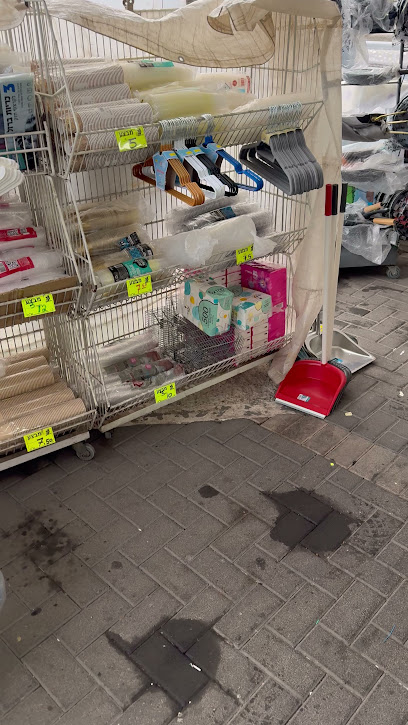
בייביזון BabyZone - מוצרי תינוקות ומתנות ליולדות
BabyZone in Beit She'an: The ultimate destination for everything baby and thoughtful gifts for new mothers.
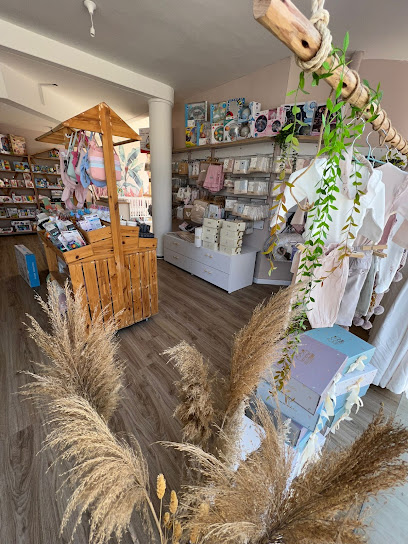
מוסקו חנות המשקאות שלי
Explore the exquisite selection of local and international liquors at מוסקו חנות המשקאות שלי in Beit She'an, a must-visit for every traveler.

פיצוחי א. מזרחי
Discover authentic local flavors at פיצוחי א. מזרחי, the premier grocery store in Beit She'an for fresh produce and traditional snacks.

ללין
Discover Laline in Beit She'an: Your destination for exquisite gifts, beauty products, and artisanal candles.
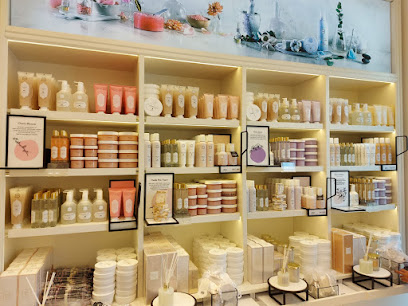
צפיחית אפיה ביתית
Discover the sweet flavors of homemade cakes and pastries at Tzafichit Afiyah Beit She'an, a must-visit for dessert lovers traveling in Israel.
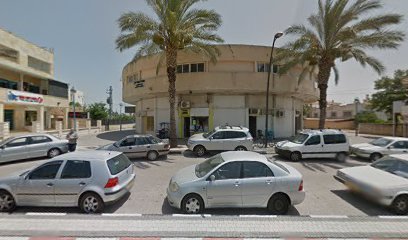
סלקשיין
Explore stylish clothing and accessories at סלקשיין, a premier fashion destination in Beit She'an, blending local flair with contemporary trends.
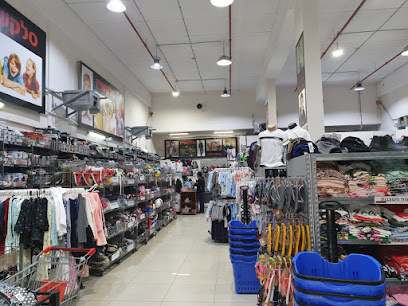
Kfar HaShaashuim
Explore the enchanting world of toys at Kfar HaShaashuim in Beit She'an, where imagination knows no bounds.
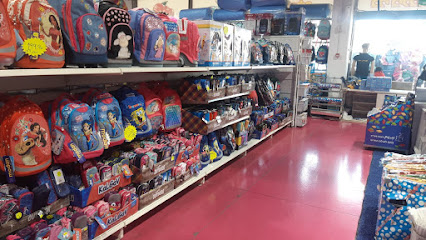
אופנת שן דוד - חייט
Explore the best of local fashion and tailoring at אופנת שן דוד - חייט in Beit She'an. Unique styles await every visitor.
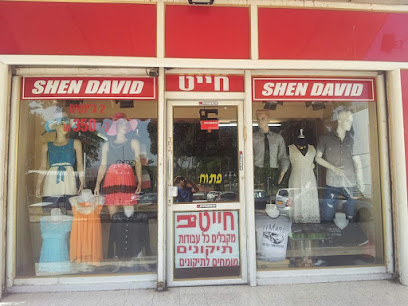
תכשיטי פדידה
Explore exquisite handcrafted jewelry at Tchachot Pedia, a treasure trove in Beit She'an showcasing local craftsmanship and timeless elegance.
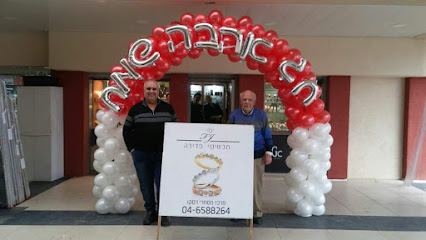
Essential bars & hidden hideouts
Shipudey Hakikar
Discover the true flavors of Israel at Shipudey Hakikar, a top restaurant in Beit She'an known for its delicious skewers and warm ambiance.
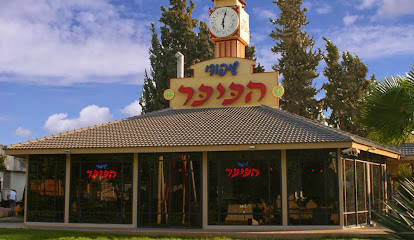
Mother Restaurant
Discover the authentic flavors of Beit She'an at Mother Restaurant, where every dish tells a story of local tradition and culinary excellence.
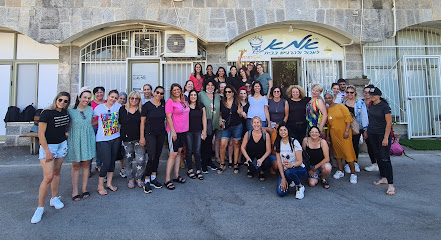
Helena Bar&Restaurant הלנה בר מסעדה
Discover the vibrant flavors of Kosher cuisine at Helena Bar&Restaurant, a culinary hotspot in Beit She'an offering a delightful dining experience.
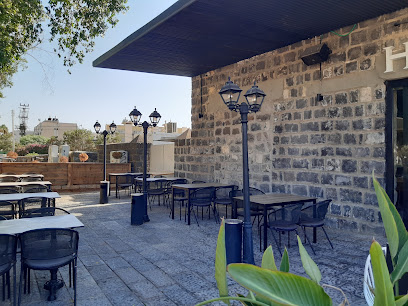
אצה סושי בר בית שאן
Discover a culinary gem in Beit She'an at אצה סושי בר, where fresh sushi and a vibrant atmosphere await you.
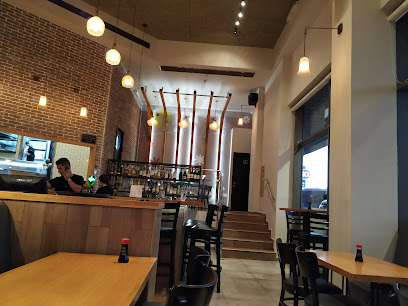
Mifgash Gil
Experience the rich flavors of Beit She'an at Mifgash Gil, where traditional cuisine meets modern dining in a cozy atmosphere.
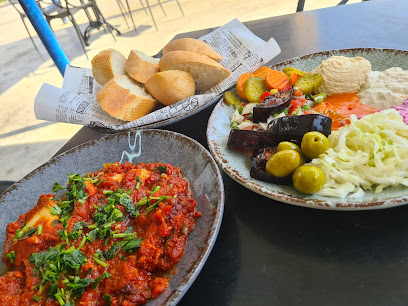
שיפודי בבילה
Experience the vibrant flavors of authentic Israeli grilled cuisine at Shipudi Babila in Beit She'an, a culinary gem for all food lovers.
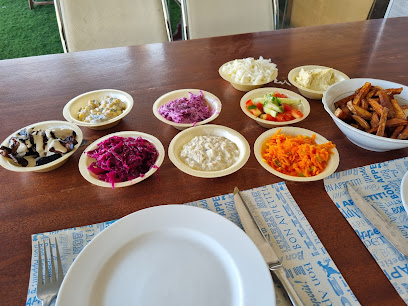
Baxi Restaurant
Discover the authentic flavors of kosher cuisine at Baxi Restaurant in Beit She'an, a delightful dining destination for tourists.
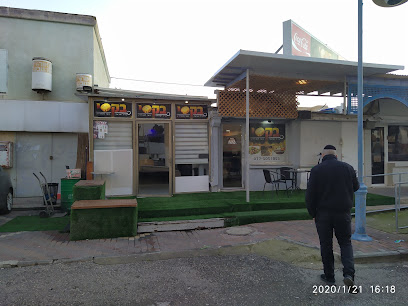
Batash Bar
Discover the vibrant nightlife at Batash Bar in Beit She'an, where every sip tells a story and every night is a celebration of local culture.
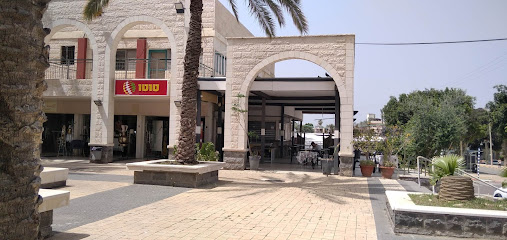
SHC - בר מסעדה
Experience the vibrant nightlife of Beit She'an at SHC, where local flavors and great drinks meet an inviting atmosphere.
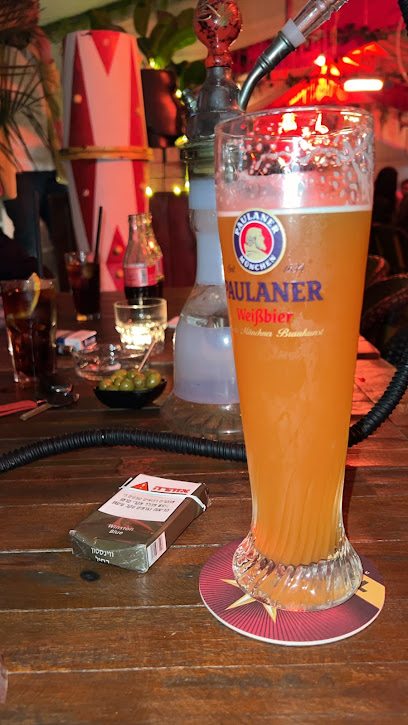
מי קאסה
Experience authentic Israeli cuisine at מי קאסה in Beit She'an, where fresh ingredients meet culinary tradition for an unforgettable dining experience.
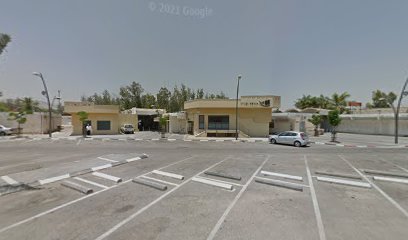
המקום
Discover HaMakom, a top-rated restaurant in Beit She'an offering a delightful blend of local culinary traditions and modern flavors.
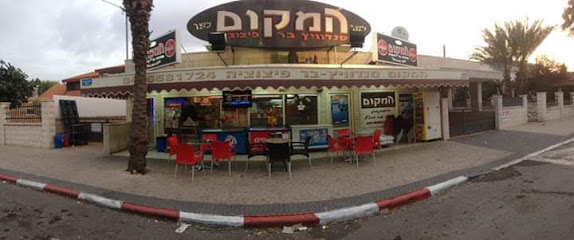
בארקה
Experience the vibrant atmosphere of Baraka, a karaoke bar on Highway 90, where music and fun come together for an unforgettable night.
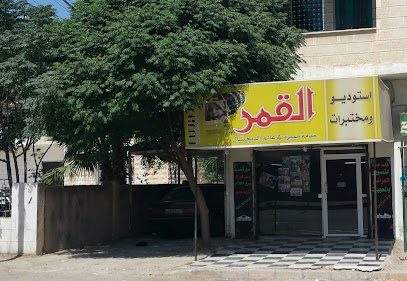
שטורמן 37
Discover the electrifying nightlife at Maoz Haim, a bar where locals and tourists unite for unforgettable evenings filled with drinks, music, and camaraderie.
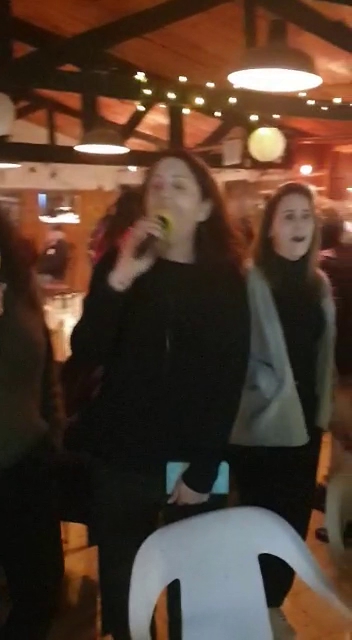
Panda Burger
Discover the irresistible flavors of Panda Burger in Beit She'an, where quality meets comfort in every delicious bite.
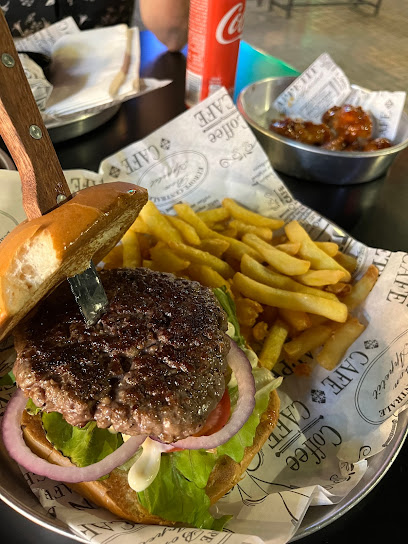
Travel experiences inspired by this city
Explore more travel diariesLocal Phrases
-
- Helloשָׁלוֹם
[Shalom] - Goodbyeלהתראות
[Lehitraot] - Yesכֵּן
[Ken] - Noלא
[Lo] - Please/You're welcomeבבקשה
[Bevakasha] - Thank youתודה
[Toda] - Excuse me/Sorryסליחה
[Slicha] - How are you?איך אתה?
[Eich ata?] - Fine. And you?טוב. ואתה?
[Tov. Ve'ata?] - Do you speak English?האם אתה מדבר אנגלית?
[Haim ata medaber anglit?] - I don't understandאני לא מבין
[Ani lo mevin]
- Helloשָׁלוֹם
-
- I'd like to see the menu, pleaseאשמח לראות את התפריט, בבקשה
[Eshmech lir'ot et hataprit, bevakasha] - I don't eat meatאני לא אוכל בשר
[Ani lo ochel basar] - Cheers!לחיים!
[Lechayim!] - I would like to pay, pleaseאשמח לשלם, בבקשה
[Eshmech lishlem, bevakasha]
- I'd like to see the menu, pleaseאשמח לראות את התפריט, בבקשה
-
- Help!עזרה!
[Ezra!] - Go away!לך לעבור!
[Lech la'avor!] - Call the Police!קרא למשטרה!
[Kra lemishtara!] - Call a doctor!קרא לרופא!
[Kra larofe!] - I'm lostאני אבוד
[Ani avud] - I'm illאני חולה
[Ani holeh]
- Help!עזרה!
-
- I'd like to buy...אשמח לקנות...
[Eshmech liknot...] - I'm just lookingרק צופה
[Rak tzofeh] - How much is it?כמה עולה זה?
[Kama ole ze?] - That's too expensiveזה יקר מדי
[Ze yakar midei] - Can you lower the price?אפשר להוריד את המחיר?
[Efshar lehorid et hamachir?]
- I'd like to buy...אשמח לקנות...
-
- What time is it?כמה השעה?
[Kama hasha'a?] - It's one o'clockהשעה היא אחת
[Hasha'a hi achat] - Half past (10)חצי (עשר)
[Chatzi (eser)] - Morningבוקר
[Boker] - Afternoonצהריים
[Tzohorayim] - Eveningערב
[Erev] - Yesterdayאתמול
[Etmol] - Todayהיום
[Hayom] - Tomorrowמחר
[Mahar] - 1אחת
[Achat] - 2שתיים
[Shtayim] - 3שלוש
[Shalosh] - 4ארבע
[Arba] - 5חמש
[Chamesh] - 6שש
[Shesh] - 7שבע
[Sheva] - 8שמונה
[Shmoneh] - 9תשע
[Tisha] - 10עשר
[Eser]
- What time is it?כמה השעה?
-
- Where's a/the...?איפה נמצא...
[Eifo nimtza...] - What's the address?מה הכתובת?
[Ma hakatovet?] - Can you show me (on the map)?אתה יכול להראות לי (על המפה)?
[Ata yachol leharot li (al hamapa)?] - When's the next (bus)?מתי האוטובוס הבא?
[Matay haotobus haba?] - A ticket (to ....)כרטיס (ל...)
[Kartis (le...)]
- Where's a/the...?איפה נמצא...
History of Beit She'an
-
Beit She'an, one of the oldest cities in the region, boasts a history that dates back to the 5th millennium BCE. During the Late Bronze Age, it came under Egyptian rule, becoming an important administrative center. Archaeological findings include an impressive array of Egyptian-style artifacts and monuments, such as the stela of Seti I and the temple dedicated to the god Mekal.
-
The city's strategic location made it a contested site between various powers. Beit She'an is mentioned in the Bible, particularly in the context of King Saul's defeat. The Philistines hung his body on the walls of Beit She'an after the Battle of Mount Gilboa. Later, during the reign of King David and Solomon, the city became an important administrative center for the Israelites.
-
Under Hellenistic rule, Beit She'an was renamed Scythopolis, becoming one of the Decapolis cities. The city flourished under Roman rule, turning into a hub of Greco-Roman culture. Magnificent public buildings, a theater, a bathhouse, and colonnaded streets were constructed. The Roman influence is evident in the well-preserved archaeological remains that attract visitors today.
-
During the Byzantine period, Scythopolis became the capital of the northern district of Palaestina Secunda. The city continued to thrive, with the construction of churches, a large basilica, and a monastery. The Byzantine influence is seen in the exquisite mosaics and other remnants scattered throughout the archaeological park.
-
In the 7th century, the city fell to Muslim Arab forces and became part of the Umayyad Caliphate. Although its prominence declined, it remained an important regional center. Archaeological evidence from this period includes a mosque and various residential structures.
-
During the Crusades, Beit She'an saw the construction of fortifications and other military structures by the Crusaders. However, the city never fully recovered its former glory and served mainly as a strategic military outpost.
-
In the 20th century, Beit She'an saw renewed interest and development due to its rich history and strategic location. Modern excavations have uncovered extensive remains from various periods, transforming the city into a significant archaeological and tourist site. The modern town of Beit She'an retains a blend of its ancient past and contemporary development.
Beit She'an Essentials
-
Beit She'an is located in the Northern District of Israel. The nearest major city is Haifa, roughly 70 kilometers away. The Ben Gurion International Airport in Tel Aviv is the primary entry point for international travelers. From Tel Aviv, you can take a direct bus, train or rent a car to reach Beit She'an. The train journey is scenic and takes about 1.5 to 2 hours. Buses are also available and run frequently from major cities like Tel Aviv, Haifa, and Jerusalem.
-
Beit She'an is a compact city, and most attractions are within walking distance. For longer distances, taxis are readily available and relatively affordable. Public buses operate regularly within the city and to neighboring towns. Renting a car can also be a good option if you plan to explore the surrounding areas. Note that Israeli drivers can be aggressive, so drive cautiously. Biking is another option, and there are bike rental services available in the city.
-
The official currency in Israel is the Israeli New Shekel (ILS). Credit cards are widely accepted in hotels, restaurants, and shops. However, it is advisable to carry some cash, especially for small purchases and in markets. ATMs are plentiful in Beit She'an, and you can withdraw cash using international debit or credit cards. Currency exchange services are also available at banks and specialized exchange offices.
-
Beit She'an is generally a safe destination for tourists. However, it is essential to take standard precautions. Avoid walking alone at night in unfamiliar areas and keep an eye on your belongings in crowded places. While there are no specific high-crime areas targeting tourists, it is always best to stay vigilant and aware of your surroundings. Always follow local advice and avoid political demonstrations or gatherings.
-
In case of an emergency, dial 100 for police, 101 for medical emergencies, and 102 for the fire department. Beit She'an has a local police station and medical facilities, including a hospital. It is recommended to have travel insurance that covers medical emergencies. Pharmacies are available for minor health issues, and many pharmacists speak English.
-
Fashion: Do dress modestly, especially when visiting religious sites. Avoid overly revealing clothing. Religion: Do respect local customs and traditions. Always cover your shoulders and knees when entering religious sites. Public Transport: Do be respectful and give up your seat to elderly passengers. Don't eat or drink on public transport. Greetings: Do greet people with a handshake. A friendly 'Shalom' (peace) is a common greeting. Eating & Drinking: Do try local delicacies and accept food offerings graciously. Don't refuse hospitality, as it is considered impolite.
-
To experience Beit She'an like a local, visit the local markets where you can buy fresh produce and traditional Israeli goods. Engage with locals, as they are often friendly and willing to share stories about the city's history and culture. Don't miss visiting the Beit She'an National Park, which features well-preserved Roman and Byzantine ruins. For a unique experience, attend a local cultural event or festival, often held in the city's amphitheater.
Trending Landmark in Beit She'an
-
Gan HaShlosha National Park
-
Church of the Nativity
-
Yardenit
-
מערת הנטיפים
-
Ma'ayan Harod National Park- Gideon's Spring
-
Beit She'an National Park
-
Tavor Mountain Reserve
-
Bet She'arim National Park
-
Ganey Hugga
-
Beit Gabriel on the Kinneret
-
Korazim National Park
-
Mishkan Museum of Art
-
Twins Cave
-
Mount Tabor
-
Ein Muda
Nearby Cities to Beit She'an
-
Things To Do in Umm Qais
-
Things To Do in Nazareth
-
Things To Do in Tiberias
-
Things To Do in Irbid
-
Things To Do in Jerash
-
Things To Do in Safed
-
Things To Do in Zikhron Ya'akov
-
Things To Do in Hadera
-
Things To Do in Caesarea
-
Things To Do in Salt
-
Things To Do in Haifa
-
Things To Do in Akko
-
Things To Do in Acre
-
Things To Do in Netanya
-
Things To Do in Kfar Saba











